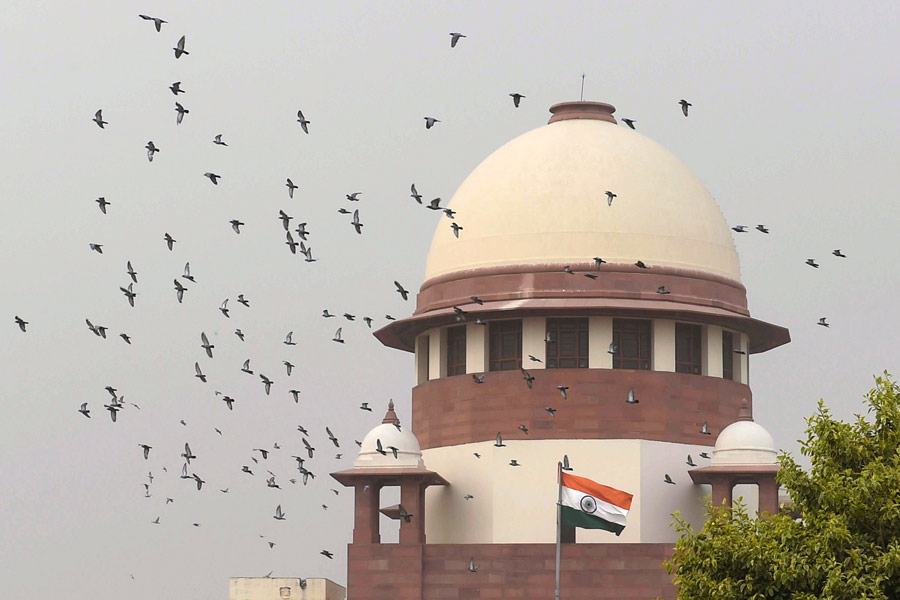From demonising an Indian neighbourhood as “Pakistan” to expressing demographic fears over conversions, from trash-talking a woman advocate about the colour of a male colleague’s “undergarments” to forbidding widows against wearing makeup, high court judges have been dropping one clanger after another.
And the Supreme Court has found itself having to clean up the mess each time.
On Friday, the apex court expunged remarks by an Allahabad High Court judge who had, while refusing bail to an accused, observed that “the majority population of the country would be in minority one day” if religious conversions are allowed to continue.
A bench headed by Chief Justice of India D.Y. Chandrachud ruled that the general observations made by Justice Rohit Ranjan Agarwal would have no bearing on the facts of the case and would not be cited as precedent in future cases.
On Wednesday, a Patna High Court judge’s comment that a widow has “no need to put on makeup” had prompted a squirming Supreme Court to hand out a “sensitivity” lesson.
The same day, a five-judge bench rebuked a Karnataka High Court judge for referring to a Bengaluru locality as “Pakistan” — presumably over its demography — and for making “patriarchal and misogynistic” comments to a woman lawyer about a male lawyer’s innerwear.
The bench of Justice Chandrachud and Justice Manoj Misra passed Friday’s order while disposing of a special leave petition moved by accused Kailash against Allahabad High Court’s July 1 order denying bail to him.
The high court had said it was not proper to grant bail to people accused of converting others, otherwise the majority population would become a minority in India.
In the July 1 order, Justice Agarwal had said: “In the instant case, there are serious allegations against the applicant by the informant that her brother was taken away from the village to attend the gathering of ‘well-being’ at New Delhi and along with him (a) number of persons from the said village were also taken there and they are being converted into Christianity.
“Brother of the informant (has) never returned to the village. Statement recorded by IO (investigating officer) of various other persons clearly revealed at this stage that the applicant Kailash had been (sic) taken away people to attend the religious congregation held at New Delhi where they are being converted (to) Christianity.
“If this process is allowed to be carried out then the majority population of this country would be in minority one day and such religious congregations should be immediately stopped where the conversion is taking place and changing religion of citizen of India.
“It is against the constitutional mandate of Article 25 of the Constitution of India which does not provide for religious conversion. It only provides freedom of conscience and freedom to profess, practice and propagation (sic) of religion.
“It has come into notice of this court in several cases that unlawful activities of conversion of people of SC/ST castes other castes including economically poor persons into Christianity is being done at rampant pace throughout the State of UP.”
He added: “This court prima facie finds the applicant is not entitled for bail.”
The apex court, which granted bail to Kailash on August 27, on Friday finally disposed of the bail application while observing: “…We clarify that the general observations made by the High Court had no bearing on the facts of the present case and were, therefore, not required for the disposal of the case.
“The observations, therefore, shall not be cited in any other case or proceeding in the High Court or in any other court….”
The apex court noted that the state government had said the investigation was still continuing, that the accused had been in custody since May 21 last year, and that a chargesheet had been submitted on July 19 last year.










